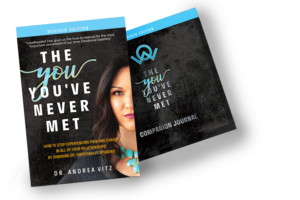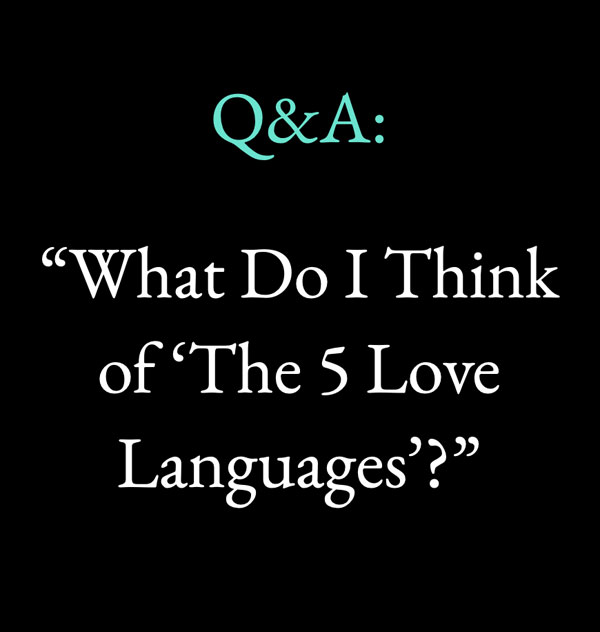Did the energy of Bill Wilson (founder of AA) work through me to create EMSO Training?
My motivation for writing the book, “The You You’ve Never Met,” was really inspired by my questioning… 
- Why are people who are seemingly deep in their recovery or sobriety still struggling with depression, anger, relapsing, or are still inevitably dying from addiction?
- Why are the people who seem to have overcome their addictive habits—sex, gambling, food addiction, alcohol, drugs, and more—still actively immature, arguing every day, or behaving defensively or compulsively in other ways?
- If sobriety is more than just being clean from drugs, alcohol, sugar, and other exogenous substances, how can we attain a state of REAL sobriety?
All of these answers needed to be uncovered, I had never thought that this inquiry would end up being part of my profession, my passion, and my life purpose.
Initially, during my own sobering up, emotionally speaking, I was studying the “Big Book,” which is the foundational A.A. (Alcoholics Anonymous) 12-Step book. Sobriety work was very clear in direction, but I felt there needed to be more action and application of the twelve steps. After I completed the 12-Step Process, I asked myself, what do I do now? I feel like I’m just getting started?” There had to be more. Even the founders of A.A. actually say that the Big Book’s message is “spiritual kindergarten.” 12-Step recovery programs specifically delineate that it’s not just a program to get you to an end goal of getting off of booze or drugs, it’s a program to get you to a place to begin healing.
In my experience with it, the Big Book is both a divinely inspired, full book, and it’s somewhat outdated in terms of its languaging and some of its practices. So I set out to write its follow-up (I know, not a simple task!). It wasn’t that I thought I could write a better book. It wasn’t that I thought I could do it more efficiently. The inner calling I received was that it needed to be continued, and I felt I had help throughout the whole process from another place in time.
 The messages I received included…
The messages I received included…
- This time in the world requires more of a how-to with the deeper investigation and a straightforward, no-nonsense, requirement of accountability.
- We need to be OK with looking at the hardest pieces of ourselves, and more objectively. Where we became offended or overwhelmed for being asked to look further, we would see it as our ego attempting to hold us in our insobriety.
- Perhaps the insobriety itself was the primary addiction, not the substance or behavior.
We need to be more brave and gritty than ever before and retain more desire for becoming new. We had to do much deeper work than traditional recovery programs asked of us.
It’s not enough to step away from our addiction. To really get free from our addiction we need to know the real reason for our addiction. More importantly, we need to become aware of and acknowledge that our REAL addiction is biochemical emotional addiction. In order to do this, we need more than a spiritual answer. Along with big “prayer,” we need to take more action. We must find the reason we have dependencies outside of ourselves for comfort, or behave in ways we don’t consciously choose, and remove that. These are the changes that I wanted to make to the concept of “recovery.” These are the things I encourage my students to do and what I really had to do for myself.
When called to write the EMSO (Emotional Sobriety) Training curriculum, I wanted to convey the epiphanies that were seemingly being fed to me about the illusion of our dependencies being the problem. What work do we really need to do to complete the incomplete options we have for addicts in this culture to get sober? With all the remaining pain and depression I’ve witnessed within the recovery community, I’ve had enough of it. Have you?
I’m not saying that our current rehab and 12-Step Programs don’t work for some people, because they do. Yet, it remains massively ignorant and neglectful to tell people they’ve “recovered” or become “sober,” when they’re still seemingly unable to handle their lives, which often leads to relapse or worse; or that something like alcoholism is their only problem and once they are free of that, they are free. There’s a huge component of overcoming our ego, our patterns, and our sicknesses of which our culture’s regular recovery programs only scratch the surface. For example, those alcoholics who shift their behaviors away from alcohol, without ridding themselves of the pain which made them reach in the first place.
There are a lucky few who get through a twelve-step process and go on to lead fulfilling lives. But what about those who, although refraining from substance abuse for years, continue to partake in other abuses—whether being on the receiving end of it, delivering abusive behavior onto others, or both?

- What about those who still behave like children in a relationship, harbor unspoken resentments, anger, and deep sadness?
- What about the years of guilt, shame, and remorse they contain within the walls of their “recovered” hearts? These are the very same emotions that created the need to reach for substances in the first place.
- What about the people who were severely harmed in some way, on their job, in the military, in a relationship, and they ended up taking drugs to support them? Or the person who was born into an alcoholic home, witnessing violence, or came from an environment of extreme pain?
- And what about those with more subtle insobriety, like passive-aggressive or dishonest behavior which causes disturbance in their lives and they don’t see their part in it? More importantly, they don’t see how their long-standing emotions create and sustain it!
Could we be dealing with an addiction and recovery framework that at the end of the day, maybe harmful to its members? Leading us to believe we are in fact “recovered.” Even the word recovery indicates we need to return to somewhere we once were, and none of us were in a place we’d like to return to. True evolution requires more than just a new language and a new program. It requires a much deeper dive into the moment by moment HOW! Leaving its people with a magnitude of skills and a new realization of who they REALLY are; to help them earn self-concepts showing them that they are powerful, and teach them how to better handle their lives moment by moment with earned self-confidence, self-trust, self-esteem, and even self-love. EMSO Training offers that to all people, including those in recovery. In other words, our new “recovery” path needs to be about the evolution of the human being. To evolve past the pull to remain the same even with “work” on ourselves. Without this vital evolutionary step, we will return to our everyday life and experience the familiar energy crisis which will pull us back to our norm when we haven’t changed our truest nature of irritability, restlessness, and discontent. We haven’t yet fulfilled the founders’ original vision of becoming truly happy, joyous, and free.
It seemed as though Bill W. whispered these insights into my ears and onto my keyboard. I heard things like: “We have to work harder and longer to go deeper into real sobriety. We need better maturity that is unwavering. We need to remove the very mechanisms that create the negative emotions within us, which create these harmful behaviors.” I knew we had to train to dismantle the very beliefs that made the negative emotions that lead us down destructive paths.
When the emotions aren’t produced it leads to clarity—where someone will suddenly know how to handle everything in their life. This leads to true peace throughout each area of life. In order for us to uncover all of our insobriety and train to strengthen ourselves, we have to work harder, longer, and more intentionally. Some may say that my curriculum asks more of them than they’ve ever been asked before. This is because I teach people to become ultra heightened aware of their beliefs, behaviors, and emotions.
While those I knew who long struggled with drugs or alcohol seemed to sometimes be able to stay away from their vice for a period of time, they would inevitably relapse. A personal friend of mine would begin drinking again after the 1.5 years mark. He religiously worked the 12-Step program, even hosting meetings at his home, yet there was something still sitting within him, still eating at him, and some aspect of himself that he wasn’t looking at, his depression, which ultimately took his life. The burdens he carried deep inside would inevitably compel him to seek the one thing that always seemed to change his state: Alcohol.
It became clear that his not having access to what was really hurting him allowed for remaining darkness within him. Because of this he wanted to be somewhere else, or do something that made him feel different. His story of “recovery” is one of my greatest motivators for this curriculum. After his death, as I was reading the 12-Step book he relied upon so much, I thought, what if he’d had an additional book? What if he’d had different love and support? What if he’d had family and friends who were all the same in commitment to their own Emotional Sobriety? If we had each spoken the same language, would we have easily noticed his pain? Know his struggles? And more importantly, know HOW to help him?
 My mission is to help others get to the point where they aren’t seeking anything external anymore. To release their story of dependency. To allow them to know that they can demand that they no longer linger in depression or anger. They don’t have the need to seek something that’s going to take them away from their current emotional state, because they’re going to want to remain in their current emotional state! They’re going to be proud to be who they are and happy with who they are.
My mission is to help others get to the point where they aren’t seeking anything external anymore. To release their story of dependency. To allow them to know that they can demand that they no longer linger in depression or anger. They don’t have the need to seek something that’s going to take them away from their current emotional state, because they’re going to want to remain in their current emotional state! They’re going to be proud to be who they are and happy with who they are.
I want EMSO for everybody! Not just for those in alcoholics anonymous. Not just another step. I want them to have a better answer, not just another answer; where they can say “It’s okay if I apply myself to this, and when I really get this I’m going to be a different person. If I’m a different person, I cannot have the same problems from which I want to escape.” It requires diligent practice and skill-building to achieve sobriety and become a fully healthy person with impactful mindfulness, good experiences, and joy in their day-to-day life.
This is the true promise of EMSO Training: Levelheadedness, clarity, and peace.
Before writing the book The You You’ve Never Met I had not studied any other writing from Bill W. So when I was complete with the development of the EMSO Training curriculum, I read this excerpt from Bill W, and was blown away at his consideration that maturity was what was missing. That our emotions were the one problem. He states,
“I think that many oldsters who have put our AA ‘booze cure’ to severe but successful tests still find they often lack emotional sobriety. Perhaps they will be the spearhead for the next major development in AA, the development of much more real maturity and balance (which is to say, humility) in our relations with ourselves, with our fellows, and with God…..Since AA began, I’ve taken immense wallops in all these areas because of my failure to grow up emotionally and spiritually. My God, how painful it is to keep demanding the impossible, and how very painful to discover, finally, that all along we have had the cart before the horse. Then comes the final agony of seeing how awfully wrong we have been, but still finding ourselves unable to get off the emotional merry-go-round…..how to translate a right mental conviction into a right emotional result, and so into easy, happy and good living.” Bill Wilson on Emotional Sobriety
Many since have attempted to find an answer to his realization, that Emotional Sobriety is the next frontier in work for recovery. I have seen EMSO Training be the answer to these declarations from Bill Wilson. The group of people in the EMSO Community who are also in recovery absolutely love EMSO suggesting that EMSO Training is what was missing from their sobriety. I am humbled to consider the same channel Bill Wilson was tapped into, I have been allowed to tap into. Let us translate the right mental conviction into the right emotional result.
Humbly,
Andrea Vitz, DC



